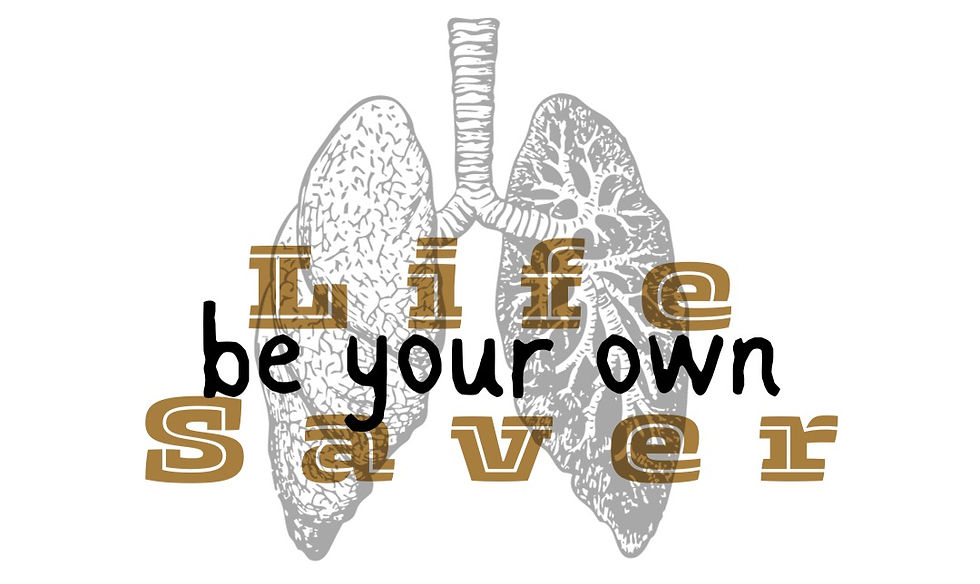Developing Resilience for Everyday Challenges
- Aug 26, 2025
- 4 min read
Life is full of ups and downs. From minor setbacks to major obstacles, everyone faces challenges that test their strength and determination. Developing resilience is essential to navigate these difficulties effectively. Resilience is not about avoiding stress or hardship but about learning how to bounce back stronger. This blog post explores practical ways to build resilience skills that help you handle everyday challenges with confidence and grace.
Building Resilience Skills: Practical Steps to Strengthen Your Inner Core
Building resilience skills requires intentional effort and practice. It is a process that involves developing habits and mindsets that support emotional strength and adaptability. Here are some practical steps to help you build resilience:
Cultivate a positive mindset: Focus on what you can control and look for opportunities in adversity. Positive thinking helps reduce stress and encourages problem-solving.
Develop strong relationships: Surround yourself with supportive friends, family, or colleagues. Social connections provide emotional support and practical help during tough times.
Practice self-care: Prioritize sleep, nutrition, and physical activity. Taking care of your body improves your ability to cope with stress.
Set realistic goals: Break down challenges into manageable steps. Achieving small goals builds confidence and momentum.
Learn from experience: Reflect on past difficulties and how you overcame them. Use these lessons to prepare for future challenges.
By incorporating these habits into your daily life, you can enhance your ability to recover from setbacks and maintain emotional balance.

Understanding the Role of Emotional Regulation in Resilience
Emotional regulation is a key component of resilience. It involves managing your emotions effectively, especially during stressful situations. When you can control your emotional responses, you are less likely to feel overwhelmed or make impulsive decisions.
Here are some techniques to improve emotional regulation:
Mindfulness meditation: This practice helps you become aware of your emotions without judgment, allowing you to respond calmly.
Deep breathing exercises: Slow, deep breaths can reduce anxiety and help you regain composure.
Cognitive reframing: Challenge negative thoughts and replace them with more balanced perspectives.
Journaling: Writing about your feelings can provide clarity and reduce emotional intensity.
Improving emotional regulation not only helps you stay calm but also enhances your problem-solving abilities during crises.

What are the 7 C's of Resilience?
The 7 C's of resilience provide a framework to understand the essential qualities that contribute to a resilient mindset. These are:
Competence: Having the skills and abilities to handle challenges effectively.
Confidence: Believing in your own worth and abilities.
Connection: Building strong, supportive relationships.
Character: Having a sense of right and wrong and acting with integrity.
Contribution: Feeling that you are part of something bigger and can make a difference.
Coping: Developing healthy ways to manage stress and adversity.
Control: Believing that you can influence your own life and outcomes.
Focusing on these areas can help you develop a well-rounded approach to resilience. For example, enhancing your competence through learning new skills can boost your confidence. Similarly, fostering connections with others provides emotional support that strengthens your coping mechanisms.

How to Apply Resilience in Daily Life: Real-World Examples
Resilience is not just a concept; it is a practical skill that you can apply every day. Here are some examples of how resilience can help in common situations:
At work: When facing a difficult project or criticism, resilient individuals stay focused, seek feedback, and adapt their approach rather than giving up.
In relationships: Resilience helps you communicate openly during conflicts and recover from misunderstandings.
Health challenges: Coping with illness or injury requires patience and a positive outlook to follow treatment plans and maintain hope.
Financial stress: Resilient people create budgets, seek advice, and explore new opportunities instead of feeling defeated.
By recognizing these moments as opportunities to practice resilience, you build your capacity to handle bigger challenges in the future.
Resources and Tools to Support Your Resilience Journey
There are many resources available to support your resilience development. Books, online courses, and community groups can provide guidance and encouragement. One helpful tool is the resilience development coloring book, which combines positive affirmations with creative expression to boost mental strength.
Other useful resources include:
Mindfulness apps: Headspace, Calm, and Insight Timer offer guided meditations.
Self-help books: Titles like "The Resilience Factor" by Karen Reivich and Andrew Shatte provide practical strategies.
Support groups: Joining groups focused on stress management or personal growth can foster connection and shared learning.
Using these tools regularly can reinforce your resilience skills and keep you motivated on your journey.
Embracing Challenges as Opportunities for Growth
Building resilience is about more than just surviving difficulties - it is about thriving through them. When you face challenges with a resilient mindset, you open the door to personal growth and transformation. Each obstacle becomes a chance to learn, adapt, and become stronger.
Remember, resilience is not a fixed trait but a skill you can develop over time. By practicing the strategies outlined here and seeking support when needed, you can build resilience skills that empower you to handle whatever life throws your way.
Stay committed to your growth, and you will find that challenges become stepping stones to a more fulfilling and balanced life.





Comments